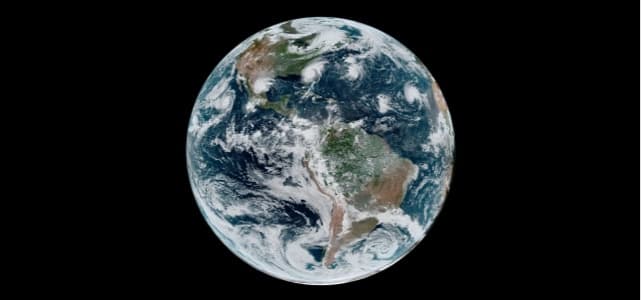Are you a journalist covering COP26 and looking for new angles to add to the climate change discussion? From examining the best ways to teach kids about climate change in the classroom to exploring the financial impact of a warming planet and making visual art out of shifts in nature, faculty experts from the University of Maryland are exploring this topic in innovative and interdisciplinary ways:
(Contact mediainfo@umd.edu for more information or for help setting up an interview.)
Teaching Climate Change in the K-12 Classroom: Doug Lombardi conducts research on effective strategies and teaching tools to support deep learning about scientific topics that pose local, regional and global challenges such as causes of current climate change and the availability of freshwater resources.
Climate Change Finance and Risk Management: Cliff Rossi explores the interconnectedness of climate change and the economy and will be watching for potential policy decisions and implications for climate change finance and risk management in both the private sector and public sector during COP21.
Methane Monitoring and Conversion: Reducing emissions from the potent greenhouse gas methane have been central to COP26 discussions so far. Russell Dickerson’s research focuses on approaches to measuring and monitoring methane in the atmosphere. Meanwhile, Eric Wachsman and colleagues developed a process for converting methane into a range of valuable commodity chemicals without releasing climate-changing emissions.
- International Climate Change Science and Policy Expertise:
- Dean Bob Orr not only serves as Dean of the School of Public Policy, but is also United Nations under secretary-general, and special advisor to the UN secretary-general on climate change.
- Ross Salawitch is a world-renowned expert on the effect of human activity on the Earth’s atmosphere and served as lead author on NOAA’s Scientific Assessment of Ozone Depletion.
Turning Waste into Sustainable Products and Energy: Stephanie Lansing is experimenting with turning food waste into bioplastics, and converting municipal solid waste into biofuels that can serve as alternatives to liquid fuels like gasoline.
Reusing Precious Water: As the effects of climate change drastically reduce the quantity and quality of water available around the world, researchers like Amy Sapkota and Masoud Negahban-Azar are developing ways to conserve and reuse water safely.
Utilizing Data to Prepare for Natural Disasters: Vanessa Frias-Martinez is using cell phone data to better understand how people react to natural disasters, including those caused by climate change.
Green Building and Climate-Smart Construction: Ming Hu is an expert on high-performance building design at the intersection of energy, human health and environmental impact.
Weather and Crop Monitoring: Researchers like Ellen Williams and Xin-Zhong Liang are working with NASA and NOAA to predict and model how climate change is influencing weather patterns and crop production around the world.
Measuring Climate Change from Space: Whether it’s utilizing lasers on the International Space Station or satellites orbiting the Earth, researchers like Ralph Dubayah, Inbal Becker-Reshef and Sinead Farrell are quantifying the impact of climate change on everything from tree canopies to agriculture and Arctic sea ice.
Sustainable Engineering: Researchers like Alba Torrents and Allison Riley are applying civil and environmental engineering concepts to reimagine wastewater treatment and to make infrastructure more resilient to extreme weather events and hazards.
Uncovering the Facts about Climate Change: A number of investigative journalism projects including “Code Red: Baltimore’s Climate Divide” led by Kathy Best, take a look through a local lens at how urban areas are influenced by the climate crisis.
Unequal Impact: Faculty like Amir Sapkota and Sacoby Wilson are examining the human health implications of climate change and the inequities related to these exposures.
Climate Change as Art: Interdisciplinary artist Cy Keener uses environmental sensing and kinetic sculpture to record and represent phenomena in the natural world such as rain, wind and ocean waves, providing a visual representation of the changes to our planet.
Contact mediainfo@umd.edu for more information or for help setting up an interview.

